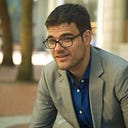Gödel’s incompleteness theorem suggests that, due to the self-reference problem, logical systems will always be incomplete.
Personally, I don’t think Godel’s work gets referenced enough. It’s perfect for invoking the state of skepticism you are calling for. Interestingly enough though the people I admire across history that I feel tried to challenge themselves to be skeptical seem to stop at some point hone in on a personal explanation of things and run with that.
I feel like it is important to hold skepticism and at the same time the living of our life generates its own story and mythos. Sometimes we need to hold onto those stories so we can better navigate the world, create a sort of . . . narrative spine of who we are and what we believe.
The trick I think is to see that spine for what it is, a story we tell ourselves.
For instance, your story of the lake seems to communicate a longing for quiet, for nature, for awe in the magnitude of life. It speaks its own narrative. To move forward in life we weave these smaller narratives into preferences, into our understanding of ourselves and the world.
A professor I once had said it well “skepticism and relativity are powerful ideas and modes of thought but at the end of the day they’re like dogs, let them run off leash and they eat everything.”
Maybe it’s important to hold some things beyond the grasp of our skepticism, our understanding of ourselves as too finite to grasp it all, and let the mystery play itself through us and the experiences we have of “understanding” whether it’s the full picture or not?
I feel like this is another component of spirituality. These small gems of memories and stories we decide to hold onto and run with. The trick in avoiding dogma I think is that we recognize we have assumed these experiences as a premise of our understanding of things and it doesn’t necessarily hold true for anyone else.
Such as a new understanding of skepticism as a spiritual practice or a personal visionary experience.
